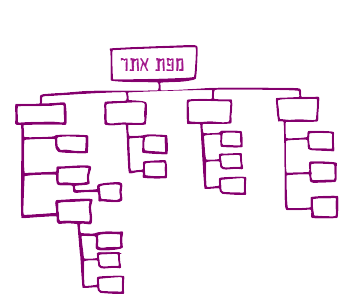Google is almost human
Over the past few years, it is said that Google has become more “human”, one might say. Google has learned to imitate the behavior of the user on the website and uses this knowledge in their ranking methods. If your site is user-friendly and gives users the answers they are looking for, chances are your site will rank well in the search results pages.
Sitemap structure within your site
In the process of website promotion and setting up your website, you need to look at the keywords you want to address and translate them into a proper website structure. Using a linking tool such as the Yoast SEO plugin, you can create built-in links to all pages of your site. This means that Google is able to follow all links and find all pages. That is, you have to set up a large infrastructure within your site for the search engines.
But why should you use Sitemaps?
A sitemap, both HTML and XML, is useful when the structure of your site and the set of internal links is not good enough. When you’re dealing with a huge, confusing legacy from the previous owner, years of writing (more or less unstructured) content, or if you haven’t paid enough attention to the issue of internal links, your sitemap will probably be a lifesaver.
In addition to displaying all of your content, XML sitemaps can also optimize the crawling of your site by a search engine bot. XML sitemaps should include the last modified date. This date will immediately inform the search engine which pages to scan and which have not changed since the last scan and may not be included in this scan. This is a huge advantage of using XML sitemaps.
There’s a reason Google included an XML Sitemap section in Google Search Console. Google likes to know every page on your site. They want to see everything, to see if it contains interesting information to answer their user’s search queries. Your XML map is like a road map to all the different points of interest on your site, to all the attractions. And, which pages are more interesting than others.
Does every site have a sitemap?
Yes, every website needs an XML sitemap. Or multiple XML sitemaps to provide lots of links in a better format. This is a way to make sure that search engines can find every page on your site, no matter how much of a mess you make of your website.
If your site’s crawlability depends on an XML sitemap, you have a very big problem. You should then, go back to the drawing board, invest a little in keyword research. rebuild the site. Use internal links when navigating your most popular pages. Then, when most of the pages on the site can be reached through the site itself, you can enjoy a site map as an additional aid.

